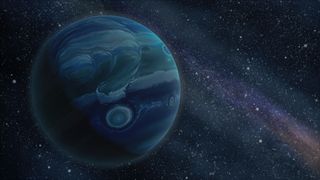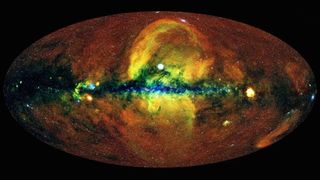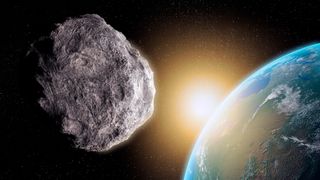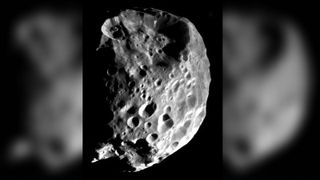Space
Explore Space
Editor's Picks
Latest about Space
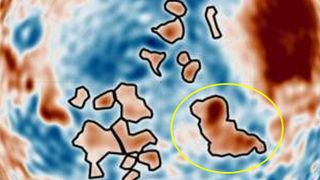
'Martian dog' and dozens of other mysterious blobs found hiding under Mars' north pole in new 'gravity map'
By Harry Baker published
A new map that details gravitational anomalies on Mars has revealed 20 mysteriously dense blobs, including a dog-shaped mass, buried below the planet's north pole. And researchers have no clear idea where they came from.
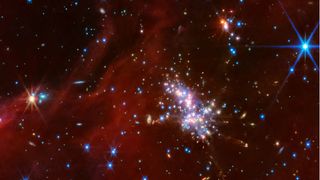
James Webb Telescope goes 'extreme' and spots baby stars at the edge of the Milky Way (image)
By Robert Lea published
The James Webb Space Telescope has taken things to the extreme, studying the outer edge of our own galaxy, the Milky Way and producing a stunning new image.
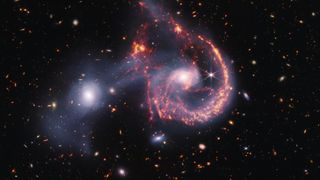
Space photo of the week: Entangled galaxies form cosmic smiley face in new James Webb telescope image
By Jamie Carter published
A new image from the James Webb Space Telescope shows Arp 107, home to two merging galaxies, with two bright cores and a "bridge" of dust and gas forming a cosmic smiley face.
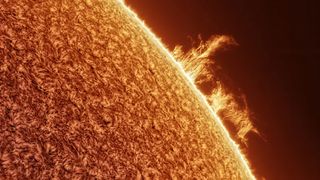
Could we turn the sun into a gigantic telescope?
By Paul Sutter published
Using a phenomenon known as gravitational lensing, it might be possible to use the sun as a gigantic telescope to peer deep into space.
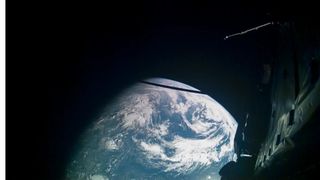
ESA's JUICE spacecraft confirmed Earth is habitable. Here's why
By Stefanie Waldek published
JUICE successfully identified water and the building blocks of life in Earth's atmosphere. In doing so, the probe headed for Jupiter's moons confirmed that its instruments are working properly.
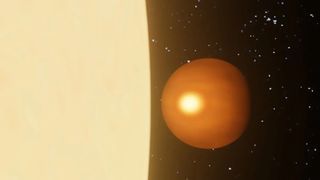
Iron winds and molten metal rains ravage a hellish hot Jupiter exoplanet
By Robert Lea published
"Our observations indicate the presence of powerful iron winds, probably fuelled by a hot spot in the atmosphere."
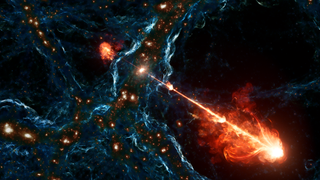
Biggest black hole jets ever seen are as long as 140 Milky Ways
By Ben Turner published
The largest-ever black hole jets ever seen hint that these cosmic monsters may play an even more significant role in shaping galaxies than previously thought.
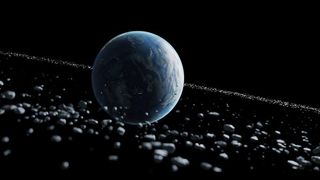
Earth once wore a Saturn-like ring, study of ancient craters suggests
By Ben Turner published
The ring could be responsible for a prolonged drop in temperatures millions of years ago.
Sign up for the Live Science daily newsletter now
Get the world’s most fascinating discoveries delivered straight to your inbox.
